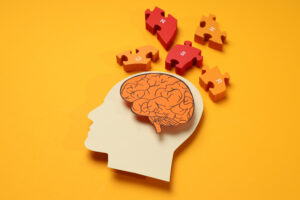Author
DR. MICHAEL S. TRAYFORD
Dr. Michael S. Trayford is a Board Certified Chiropractic Neurologist and Neurofeedback Specialist with over 20 years of experience in the practice of advanced functional neurology. He is one of the most highly sought-after brain rehabilitation specialists because of the life-changing outcomes his patients consistently experience. After over a decade in private practice and working alongside other pioneers in the field, Dr. Trayford developed his multimodal intensive brain training and rehabilitation program built around the science of Neuroplasticity – the ability of the brain to learn and grow dependent upon the stimulation it receives from its environment. He later founded APEX Brain Centers to combine his ground-breaking rehabilitation approach with a unique patient and caretaker-centered care model. Under Dr. Trayford’s leadership, APEX Brain Centers has successfully treated thousands of patients and earned the reputation of a world-renowned brain training and rehabilitation practice. Since its inception, Dr. Trayford has been a leader of the Brain Training revolution treating patients worldwide. In addition, he is a published journal contributor and international lecturer. His experience with various patients of all ages and neurological conditions has given him a unique perspective on brain health and human performance. He is also well-versed in collaborating with other health care professionals, making him an invaluable asset to any care team. Dr. Trayford was awarded the Functional Neurologist of the Year distinction by the International Association of Functional Neurology and Rehabilitation, where he is a proud member and conference lecturer. Currently, he serves on the Advisory Council for the Dementia Society of America and the Board of Directors for the International Society for Neuroregulation and Research. He is also a servant leader who has dedicated his adult life to serving multiple communities through Rotary International and other notable causes. When he’s not treating patients, Dr. Trayford usually reads or researches anything related to the brain, human performance, and leadership. He also loves spending time outdoors with his wife Denise, their two daughters, and dogs in the beautiful mountains of western North Carolina. https://www.linkedin.com/in/drmichaeltrayford/
2 Comments
Leave a Comment
Find Out if Brain Rehabilitation Can Help
Get your questions answered and understand treatment options by one of our board-certified physicians with extensive functional neurology experience.
Consultations are free, 15-minute phone calls, scheduled Monday through Friday.
Recent Blog Posts
Optimizing Brain Health with Metabolic and Nutritional Therapy: A Comprehensive Guide
Living with Cognitive Decline: Tools for Management and Improvement
Cognitive Decline: From Causes to Solutions – Concise Insights and Strategies
Nutrition and Your Brain: Understanding Metabolic and Nutritional Therapy
Brain Food: The Impact of Metabolic and Nutritional Therapy on Brain Health
How Metabolic and Nutritional Therapy Can Improve Your Cognitive Function
Optimizing Brain Health with Metabolic and Nutritional Therapy: A Comprehensive Guide
By DR. MICHAEL S. TRAYFORD
Living with Cognitive Decline: Tools for Management and Improvement
By DR. MICHAEL S. TRAYFORD
Cognitive Decline: From Causes to Solutions – Concise Insights and Strategies
By DR. MICHAEL S. TRAYFORD
See if APEX Can Help
Schedule a free, confidential consultation with one of our board-certified physicians.




I am learning that my loss of balance due to a small stroke in my cerebellum only a year and a half ago has led to a cognitive decline. My Medicare Advantage provider in Colorado found this stroke on a specialized CT scan bout one year ago during the Covid Pandemic, but they could not start any therapy at that time.
Now, I am trying to find a way to correct my balance as much as possible and to stop my cognitive decline as much as possible. Do you have any clinics in Denver, Colorado?
Terril Heilman
Hello. We do not have a clinic in Denver. The center we knew of there has closed and we have hired one of the doctors here to Asheville, NC. Our programs are immersive in nature where you would spend 1-3 weeks with us for all phases of rehabilitation. Please call us at 828.708.5274 to schedule consultation to discover options for you. Take care.